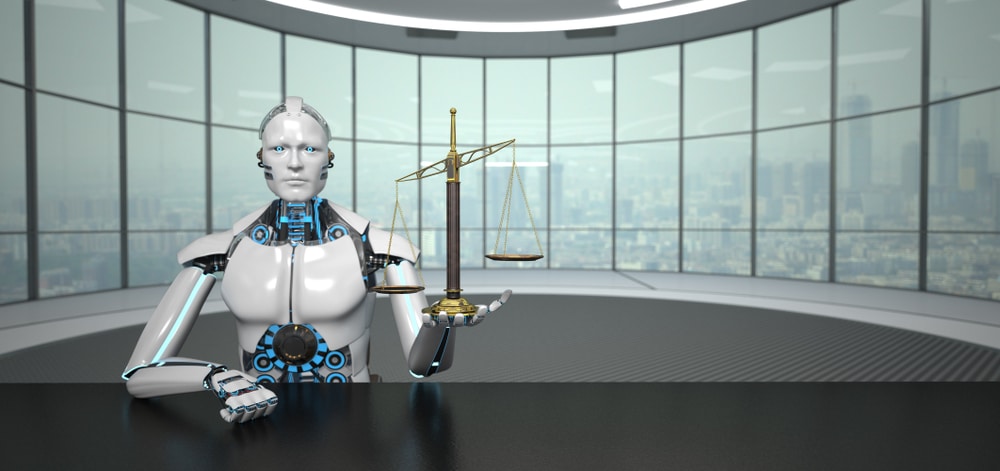Is legal advice via AI a good idea?

Artificial intelligence is a controversial subject in any field -- including practicing the law. Even now, lawyers and law firms weigh the positives and negatives of using AI to dispense legal advice or automate basic tasks.
Here’s a look at both sides of the argument.
How AI Might Be Beneficial in Law
Are there any instances where AI could be beneficial in law practices? There may be 114,000 instances if predictions in a recent Deloitte report come to pass. The report cites the rapid pace of technological development as the reason why 114,000 jobs in the legal sector will be automated within two decades.
The tasks AI is likeliest to inherit are those in the discovery phase of legal cases. In this phase, legal clerks research the issues involved, find existing precedents in the legal canon and help determine the shape a case will take. This kind of deep searching, comparison and analysis is precisely the type of work artificial intelligence excels at.
The founder of Kira Systems, Noah Waisberg, claims his company’s AI product can greatly reduce the likelihood of due diligence errors made by junior lawyers. The company also claims the software can perform this type of work between 40 and 90 percent faster than humans.
Chatbots are another compelling application for artificial intelligence in law. One system, called DoNotPay, names themselves as the world’s first robot lawyer. It’s designed to gather and analyze the information clients need to fight parking tickets, bring legal action against people or corporations, beat bureaucratic challenges and even cancel free trials.
The people who built the bot said they had experience with writing certain appeals time and time again for campus parking violations and other minor offenses. It’s easy to see the potential appeal and usefulness of a chatbot that helps cut through the endless red tape of modern life -- and even irons out miscommunications between average citizens and local authorities.
Potential Downsides of AI in Law
The question is, what could potentially be dangerous about legal advice and AI? Other possible applications of AI exist in the legal sector, and some of them are more controversial and potentially problematic than fact-finding.
Law firms could easily use AI to determine the likelihood of whether they could win a case. AI could also help a legal firm decide whether to encourage their client to settle, rather than take their case to court.
We haven’t reached the point where AI is widely used for this purpose. However, leaning on artificial intelligence instead of the moral content of a legal challenge may take some of the heart out of what is meant to be a people-centric profession. Could AI make navigating the law even more transactional?
Take divorce as another example. An average divorce costs $30,000 to execute — around $15,000 per person. This statistic -- along with the fact most divorce settlements take a year or more to finalize -- is why a company called Wevorce now offers a "self-guided" AI tool for divorces. While they still have legal counsel available, divorcing couples can use the tool to define what they want out of a settlement and receive adaptive guidance as they navigate the process.
Divorce is fairly common, and it’s easy to see why automated divorces could help many. However, whether a graphic interface can act as a more comforting and useful mediator than a human being is an open question. Further, the reason divorces take so long on average is because people are unyielding about what they want out of the proceedings -- not because they’ve failed to be clear.
Legal Advice and AI -- Imperfect, but Here to Stay
Artificial intelligence has much to offer any industry that requires rigorous due diligence, accuracy and consistency. Its prospects include several aspects of practicing the law and dispensing legal advice to clients.
However, practicing the law is about more than quoting precedent. It’s also about interpreting and updating legal precedent whenever required.
Some cases might include a messy divorce where all parties -- or no parties -- are at fault. Other times, nuances in a conflict of interest or disinterestedness can make cases less-than-straightforward to settle. While artificial intelligence could provide context and references for situations like these, it may be some time before the technology phases out human arbitrators completely.
When two parties need non-binding outside help to reach an agreement, they turn to a mediator. For legally binding legal guidance, professional arbitrators are available. AI is most useful today in lower-stakes cases that might be handled by a mediator and for gradually replacing lower-tier legal clerks tasked with fact-finding and research.
Automation of this kind has cost 31,000 legal jobs already, according to one report. Yet, the sector grew by 80,000 jobs in the same amount of time. These jobs are largely better-paid and require more refined skills. It seems AI is on its way to becoming an ally in providing legal advice, even if "robot lawyer" is still a stretch.
Photo Credit: Alexander Limbach/Shutterstock
 Kayla Matthews is a senior writer at MakeUseOf and a freelance writer for Digital Trends. To read more from Kayla, visit her website productivitybytes.com.
Kayla Matthews is a senior writer at MakeUseOf and a freelance writer for Digital Trends. To read more from Kayla, visit her website productivitybytes.com.
